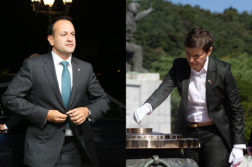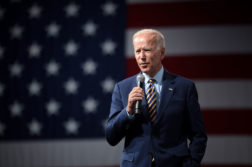The shocking murder of a young Australian engineer, Drew Nicholas Grant — along with another employee of Freeport McMoRan’s Grasberg Mine and an Indonesian policeman — is a tragic reminder that the huge gold and copper mine is a flash point of conflict in the Indonesian province of Papua.
Large mining companies operating in environmentally sensitive locations have been the focus of conflict and controversy in many poor countries. In neighbouring Papua New Guinea, Ok Tedi and Bougainville Copper’s Panguna mine are two significant examples.
In fact, a comparison of Grasberg to Panguna is particularly instructive because Bougainville Copper dominated the PNG economy just as Freeport does that of Indonesian Papua. The Panguna mine, which closed in 1989, was sabotaged as part of the Bougainville Revolutionary Army’s campaign to secede from PNG. The mine became one of the factors motivating the struggle to create a separate state in Bougainville.
Similarly, in Papuan eyes, Grasberg is a symbol of the exploitation of Papua’s resources for the benefit of others, be it by foreign corporations or by the Indonesian Government and security forces. Freeport’s mine is distinct, however, in that it commenced operations in a territory where an independence movement was already well established.
In many ways, the Grasberg mine is both a microcosm of conflicts in Papua and the extreme manifestation of conflicts that have engulfed Papua under Indonesian rule. Located in a remote mountainous area, it generates great wealth from the resources of a society that is one of the poorest in Indonesia. Indonesian security forces maintain a strong presence (and a history of human rights abuses) at the mine site, and it has a large Indonesian migrant labour force. The Amungme and Kamoro communities on whose land the mine operates have borne both its environmental and social impact.
A significant player in the Indonesian economy and globally, the mine produces about 4 per cent of the world’s copper and is one of the largest gold producers. It is managed by Freeport Indonesia, a subsidiary of the New Orleans-based US miner Freeport McMoRan, and is part owned by the Anglo-Australian Rio Tinto. In 2007 Freeport contributed US$1.8 billion to Indonesian Government revenue through taxes, royalties and dividends, and between 1992 and 2007 the mine contributed US$54 billion to Indonesia’s GDP. These figures make Freeport one of the largest corporate taxpayers in Indonesia.
In 2002 the International Crisis Group found that the Indonesian security forces in Papua had a vested financial interest in resource extraction through direct involvement in logging and protection fees from resource companies like Freeport. The military’s relationship with Freeport was described as "symbiotic". The security forces in Indonesia do not receive sufficient funds from the Government to cover their operational costs and, without payment from corporations such as Freeport, would not function in their current form.
Ironically perhaps, from the resource company’s perspective, the security forces pose the greatest threat to the conflict-free running of projects. In March this year, Freeport admitted making direct payments of "less than" US$1.6 million to the military in 2008. This makes up part of broader "support costs" payments to police and soldiers of $US8 million, as reported by Freeport to the US Securities and Exchange Commission.
The complex manner in which Freeport — and the human rights abuses associated with it — has shaped Papuan politics is illustrated by the very different careers of two Papuan leaders. Tom Beanal, a leader of the Amungme people, came to prominence as a defender of his people against Freeport. In 1997 he took the company to court in the United States on environmental and human rights issues. In early 2000, however, he was appointed as a Commissioner of Freeport. Later in the year he signed a Memorandum of Understanding with the company on behalf of the Amungme and Kamoro peoples concerning socio-economic resources, human rights, land rights and environmental rights. In the same year, Beanal became a leader of the pro-independence Papuan Presidium Council.
John Rumbiak, who was a contributor to a 1995 report on human rights abuses around Freeport, went on to become the leader of Elsham, the foremost human rights organisation in Papua. At the Freeport Annual General Meeting in 2001, Rumbiak described the company’s occasional financial support of the independence movement as "classic politics of Freeport".
"It is no secret that Freeport is playing a deceitful game by contributing to the independence movement of West Papua when their real purpose is to pacify the Papuans," he said.
The killing of Drew Grant reminds us of the murder of three teachers — one Indonesian and two Americans — at the mine in August 2002. Despite early reports from Indonesian police, Elsham and the CIA which linked the military to the killings, in November 2006 a Papuan villager by the name of Antonius Wamang was sentenced to life and other Papuans were sentenced to lesser terms in prison for the killings. Eben Kirksey and Andreas Harsono’s impressive investigation of the 2002 murders suggests an intricate web of collaboration and connections between Wamang’s group and the military made the killings possible.
The killings and the FBI’s involvement in the investigation became a critical issue in US-Indonesia relations and hindered the restoration of military to military cooperation until Wamang’s conviction. (This was remarkable given the Bush administration was otherwise keen to engage the Indonesian military in the post 9/11 "war on terror".) For several years the US struggled to secure a credible investigation and made FBI involvement prerequisite for normal military relations. The conviction of Papuans for the murders facilitated the realisation of both Indonesian and US policy objectives.
Another notable aspect of the difficult negotiations between the US and Indonesian governments was the American attempt to restrain the Indonesian military. In a recently declassified cable it was revealed that US Ambassador Ralph Boyce reported to Washington in August 2002 that he had "asked that Indonesia not take generalised repressive measures in the province in response to the attack". In 2004 — after Elsham and other Papuan human rights organisations issued a press release accusing the US of suppressing evidence linking Wamang to the Indonesian military — the Embassy urged Indonesia not to use the case "as a public justification for a crackdown on legitimate Papuan advocacy groups". Such diplomatic urgings suggest that the American Embassy was fully cognisant of the pattern of military behaviour in Papua.
With all the controversies, violence and human rights abuses associated with Grasberg, many Papuans demand that the mine be closed. Given that the massive operation accounts for half of Papua’s GDP, if ever Papuans were to wrest greater control over their own affairs from the central Government in Jakarta, they would have to deal with Freeport and address a very complex set of problems. How would the environmental and social impacts of the mine be managed? How would the tax revenues and royalties generated by the mine be distributed between the communities on whose land the mine is located? These and other Freeport-related questions would challenge a government of an autonomous Papua.
Donate To New Matilda
New Matilda is a small, independent media outlet. We survive through reader contributions, and never losing a lawsuit. If you got something from this article, giving something back helps us to continue speaking truth to power. Every little bit counts.



